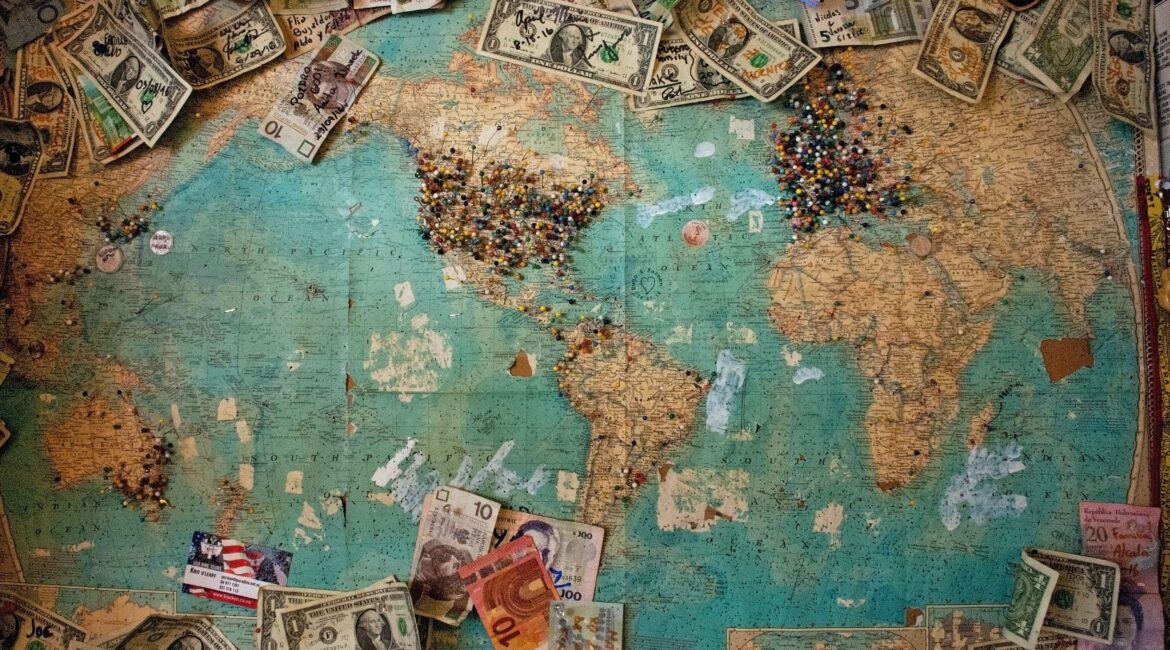The substantial invasion of Ukraine by Russia (February 24, 2022) surprised the countries of North Africa and the Middle East, placing them in a very uncomfortable situation. Most of them indeed preserve close relations with Russia in many fields (energy, armaments, agro-food, tourism) and adapt perfectly to the autocratic and revisionist discourse of the master of the Kremlin.
The countries of the Middle East and North Africa are reluctant to take sides so as not to endanger their growing cooperation with Russia. As far as they are concerned, Israel, Turkey and Iran found themselves in a particularly delicate position. While Turkey seems to have temporarily joined NATO positions, Israel finds itself increasingly isolated. Iran fears for its part that the agreement painfully negotiated with the United States will be called into question by Russia.
The war in Ukraine has caused soaring wheat prices, but especially hydrocarbons, which is excellent news for the OPEC countries. Gas-exporting countries could restore their reputation with Westerners by replacing Russia, notably Algeria, Qatar and Libya. Algeria could take advantage of this to reverse the alliance to the benefit of Germany and Turkey. Countries with a large population, a weak economy and no hydrocarbon resources will, on the other hand, suffer and they could be destabilized by food riots. Countries very close to Russia or hosting Russian bases on their territory may have to position themselves clearly, at the risk of finding themselves isolated.
The firm, united and immediate reaction of most European countries, France and Germany in the lead, stunned the States of North Africa and the Middle East. Russia’s growing isolation on the international scene, together with strong American and Asian pressure, has strained them to reconsider their posture. Only Syria voted without surprise against the text of the resolution submitted to the vote of the United Nations General Assembly (March 2), admittedly non-binding; Algeria, Iran and Iraq abstained; Morocco, absent, did not participate in the vote. All other states in the region supported the resolution condemning the Russian invasion and calling for an end to hostilities.
Regional folders now take a back seat, whether it is the Iranian nuclear and the return to the JCPOA, the war in Syria, the war in Yemen, the risks of confrontation between Israel and Iran supported by Hezbollah (or vice versa) , the collapse of Lebanon, the Israeli-Palestinian conflict, the Libyan conflict, the Western Sahara conflict, the resulting tensions between Algeria and Morocco, the instability in the Sahel and Saharian strip, or further tensions in the eastern Mediterranean between Turkey, Greece and Cyprus.
Ukraine and Russia are major exporters of wheat and cereals. The absence of their production on the world market, coupled with the uncertainty generated by the risks of this crisis slipping, which encourage cautious purchases, has led to the doubling of wheat prices (to 320 euro per ton) which remain a staple in North Africa, the Levant and the Arabian Peninsula.
For countries that are net exporters of oil and natural gas, this surge in prices is a boon. With a barrel that has exceeded 130 dollars (its highest price for ten years) and a gas price reaching 190 euro per megawatt/hour (+50%), these countries are bailing out their coffers and can consider buying social peace, in particular to deal with the sharp rise in the prices of wheat and other raw materials. The main beneficiaries are Saudi Arabia, Algeria, Libya, Qatar, Kuwait, Iraq, the United Arab Emirates and Iran to a much lesser extent, since the quantity of hydrocarbons that the Islamic Republic can export is very limited by the weight of the sanctions.
Countries that host official or informal Russian bases (Syria, Sudan, Libya), as well as states that maintain strong ties with Russia (Algeria, Egypt, United Arab Emirates, Saudi Arabia) risk being called upon to choose their side, or failing to incur some form of isolation. The two most targeted countries are undoubtedly Syria and Sudan. The others retain assets that offer them some leeway, like Egypt, whose isolation and instability no one wants, which would have immediate repercussions on the security of the Suez Canal
On the other hand, those who are waiting for the delivery of Russian arms (Algeria, Egypt, Syria), who were in the process of negotiating major arms contracts (Iran, Turkey, Saudi Arabia) or who depend on the Kremlin to supply their stocks ammunition and spare parts (UAE, Kuwait, Iraq, Yemen) may have to wait a long time. There is no doubt that the Americans, the Chinese, the Europeans, the Turks and the Israelis see it as an opportunity to eventually regain market share.
It is too early to assess the lasting impact of the war in Ukraine on the North Africa and Middle East region. But if the marginalization of Russia persists and if the European states most concerned by the future of this region do not seize this opportunity to reengage there, it is possible that China will take the opportunity to advance its pawns in all directions, improving thus its position vis-à-vis the United States. One thing seems certain: the Arab world, Turkey, Iran and Israel are watching with the keenest attention the way in which the European Union and NATO are going to position themselves and manage the post-conflict when it occurs. Any sign of weakness or panic will then be paid dearly and in cash.

